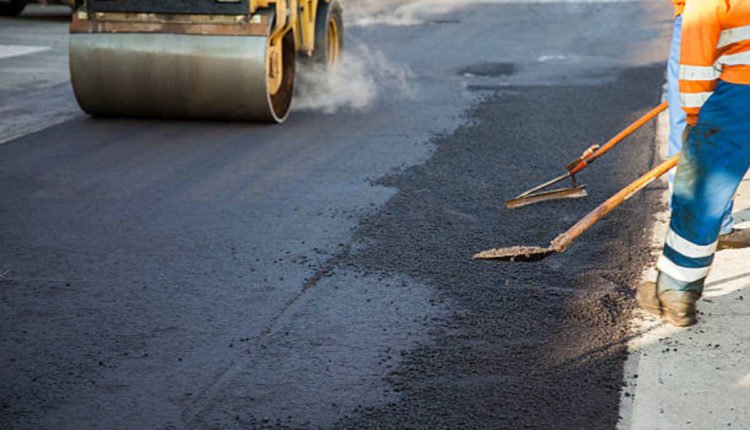Asphalt pavement can provide an economical, long-term alternative to gravel in driveways and roads, with either a smooth or textured surface, depending on your preferences, which will outlive its predecessor for many years with proper care and upkeep. The best guide to finding Hometown Asphalt Paving of Long Beach.
Before pavement begins, professional contractors use gravel asphalt foundations for stability and water drainage, helping prevent rutting and premature wear. This helps prevent premature wear on pavement surfaces.
Cost of Materials
Asphalt is a sturdy material used to pave parking lots, driveways, roads, and other surfaces. Installation is quick and provides good traction; costs less compared to concrete; can be resurfaced more easily; is easy to customize with different textures and colors; but requires regular maintenance in order to remain looking its best and functioning effectively.
Costs associated with asphalt paving projects depend on which material you select for pavement – for instance, gravel is generally less costly but lacks durability during heavy rainfall, while blacktop offers better traction and a longer lifespan than gravel.
Consider whether or not you would prefer your new pavement to be constructed from recycled or reclaimed materials; this will reduce overall costs while offering tax breaks and credits.
Once again, an essential consideration in choosing whether to resurface existing pavement or replace it entirely is cost. Resurfacing costs from $1 to $3 per square foot, while installing new pavement may cost as much as $4 per square foot depending on the type and surface area used; cold-mix asphalt tends to be less costly but not suitable for all surfaces.
Cost of Installation
Apart from materials costs, the total cost of an asphalt paving project also includes construction and labor expenses. These factors will vary based on your chosen paving type and project scope.
A more extensive driveway requires more parking spaces, thus increasing costs significantly. To reduce installation expenses and improve drainage naturally, opt for porous asphalt paving with oxygen and water vapor permeating through to promote natural drainage – plus, it may qualify for tax deductions!
Paving contractors should first remove and haul away existing pavement, compact the soil, and lay base material before installing new asphalt pavement. This step is essential in order to prevent cracking or deterioration more rapidly than it should. If the area you need paved is sloped, excavation may also be required to ensure adequate drainage.
Asphalt is sold by the ton, and each ton can cover between 40 and 80 square feet of paved surface area. A typical residential driveway requires anywhere between 7-15 tons for use; hot mix asphalt typically costs $100-200 per ton, while cold mix is cheaper, though only suitable for temporary repairs lasting only several seasons.
Cost of Repairs
Asphalt may be more durable than gravel, but just like any surface exposed to heavy traffic and weather elements, asphalt will eventually require repair. Ignoring these needs can result in expensive resurfacing or replacement procedures being necessary, so regular maintenance and prompt repairs are crucial if you want your asphalt surface to outlive its lifespan.
Repair costs depend on the severity of damage, the repair method chosen, local labor and material costs, and local labor and material availability. Crack filling is usually the least costly solution; more extensive damages may necessitate resurfacing or complete pavement replacement; prompt asphalt repairs not only reduce repair costs but can also enhance safety and increase curb appeal.
Asphalt paving projects involve excavation, ground preparation, construction materials, and the price of liquid asphalt itself, which fluctuates with oil prices. Some installations also involve installing foundation layers of crushed stone that add to overall costs. Furthermore, drainage design is essential to a lasting pavement surface’s performance – improper drainage design could increase paving costs by up to $2.00 per square foot.
To reduce paving costs, the key is choosing a professional asphalt contractor with experience installing driveways, parking lots, and roadways. When making your selection, ask to see samples of their past work as well as read reviews on HomeGuide or Google before making a final decision. Ask them for contracts detailing both an estimate and warranty before beginning their services.
Cost of Maintenance
When it comes to paving, there are various materials and approaches to choose from. Gravel is one of the cheapest and easiest options available, costing only pennies per square foot to install; however, its lack of durability often results in it becoming muddy during heavy rainstorms. Asphalt, on the other hand, is more expensive but more robust and offers customization with color and other aesthetic features for customization options.
At the first sign of damage to your paving, it is vital to perform maintenance immediately in order to prevent costly repairs in the future. One popular maintenance approach is using hot joint crack filler to fill any cracks – this will extend its life and enhance safety.
Resurfacing can also be an option, which involves covering the top layer of pavement with new material and applying it over your existing layers. Resurfacing may serve as a practical middle ground between complete repair and replacement; any professional involved with this approach must be experienced with both resurfacing and complete replacement projects.
Asphalt paving projects often involve drainage design or repair to prevent water erosion over time, adding to the cost but ultimately saving money in the long run. Plus, porous asphalt offers tax deductions!
Read also: Is It A Good Time To Buy Property In Malta?


